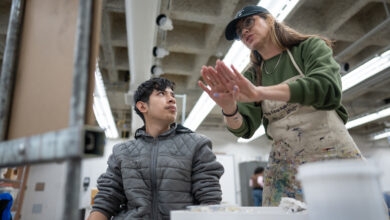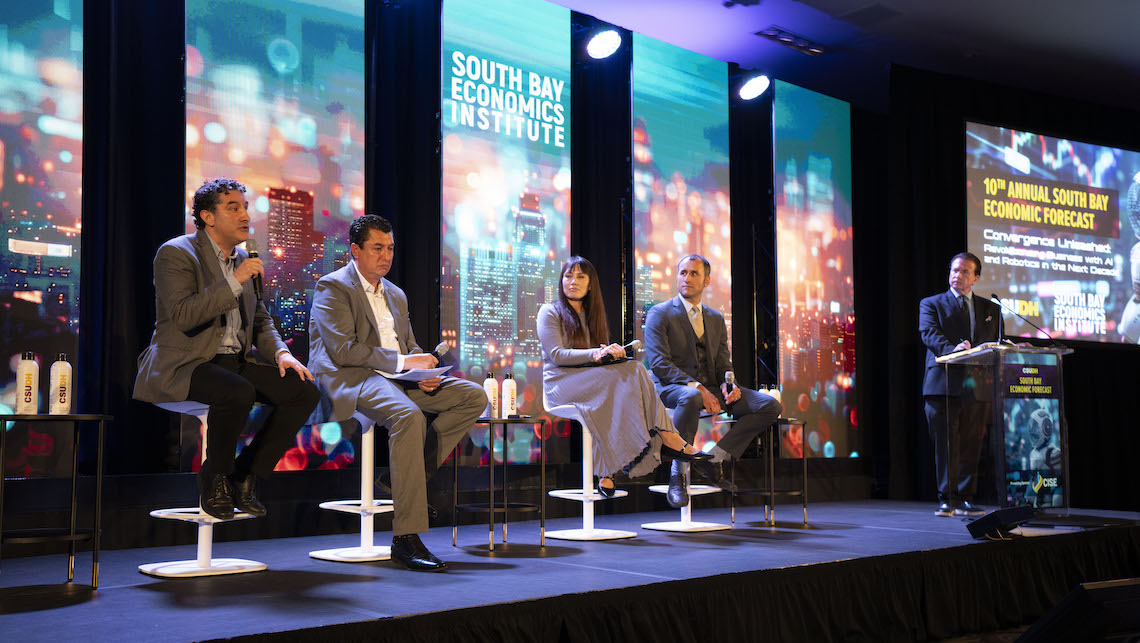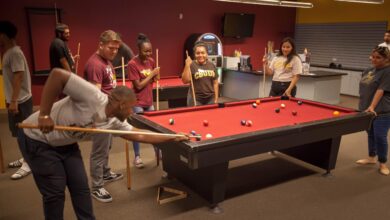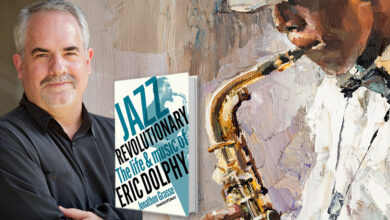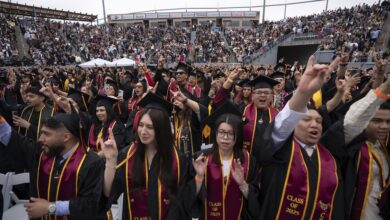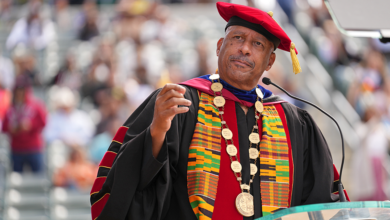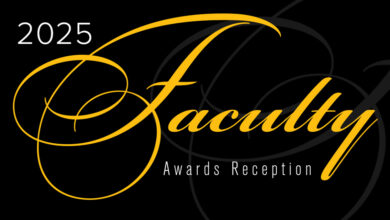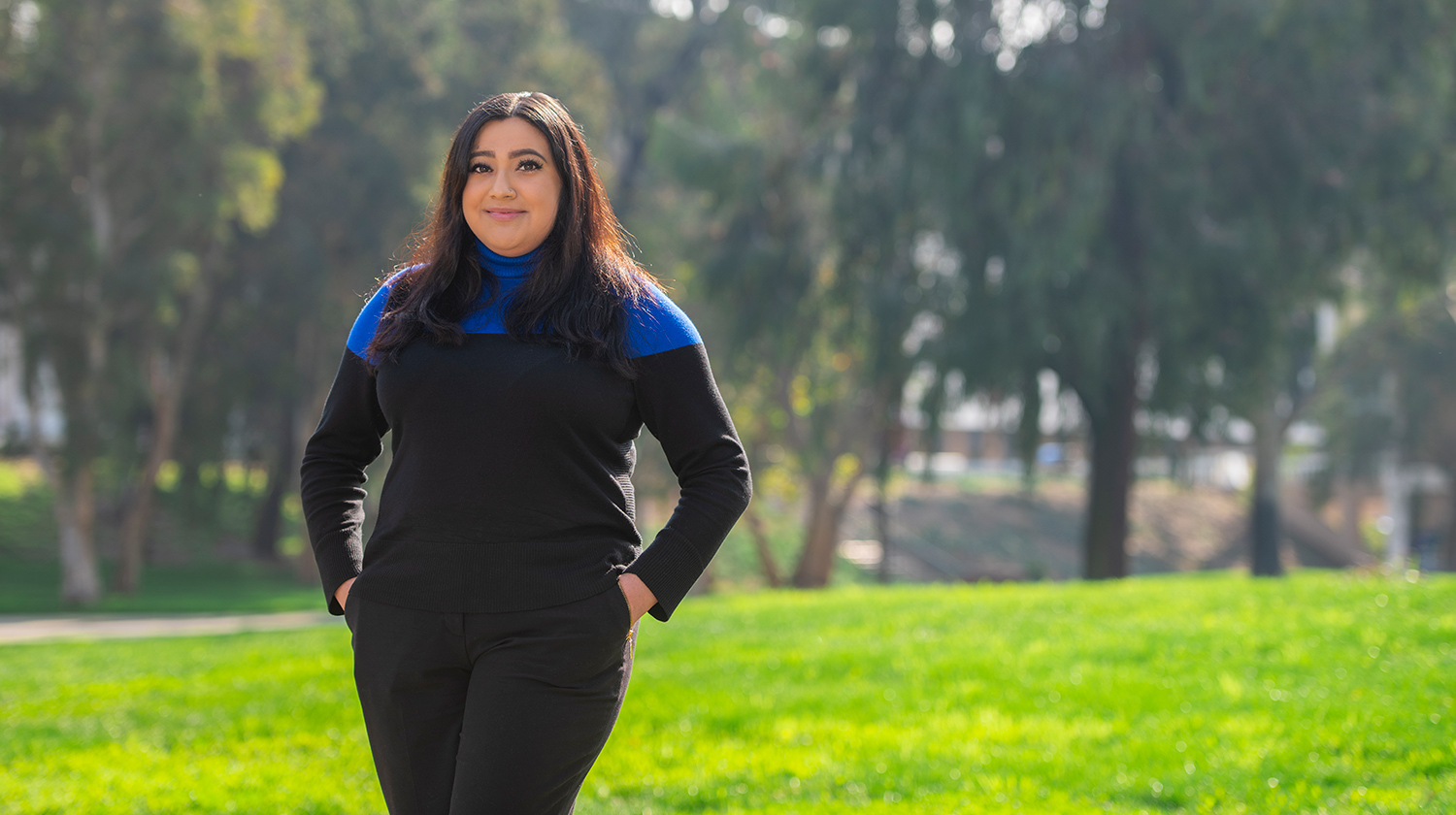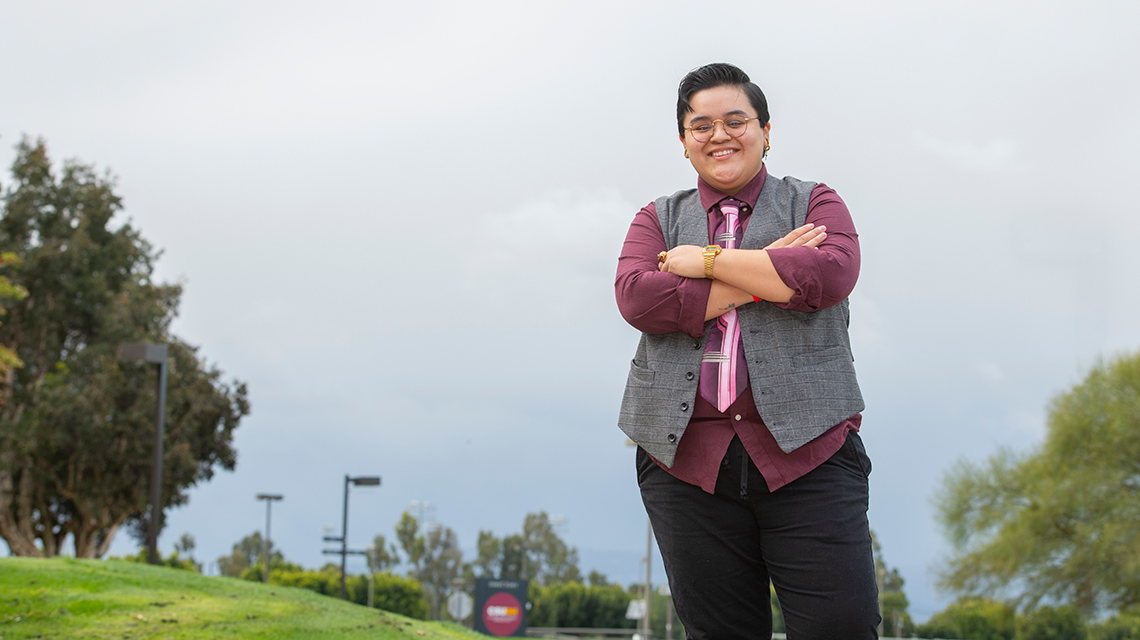
While COVID-19 altered the format and dynamics of the 16th Annual Student Research Conference (SRC) at California State University, Dominguez Hills, the important things remained the same – the need for rigorous research to enter, vigorous dedication to be competitive, and steadfast mentorship to win.
Showcasing the high standards for student research and faculty mentorship at CSUDH, 29 students garnered top honors in 17 categories during SRC on March 1-5.
This year, the annual conference was retooled to a well-orchestrated virtual event. From pre-recorded oral presentations and digital research posters, to live Q&A sessions filled with dozens of student researchers for judges to question, the SRC Organizing Committee successfully raised the bar for the approximately 266 competitors.
“The Student Research Conference has always been a highlight of the year for so many students and faculty,” says Terry McGlynn, professor of biology and director of undergraduate research, who served as chair of the Organizing Committee. “Even though the pandemic has placed many obstacles in front of us, many of our students have continued to excel in research, and as always, it’s important to elevate and celebrate this work.”
A Sample of the Outstanding Student Research
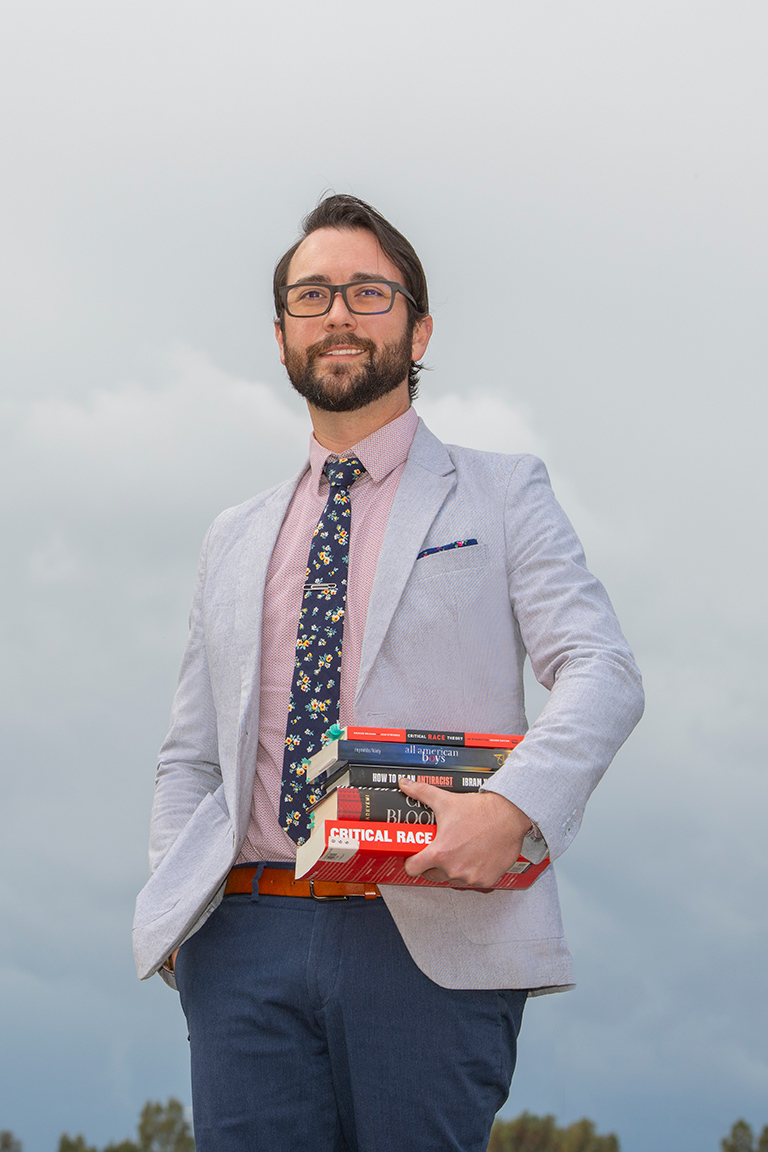
English Literature major Matthew Hernandez grabbed first in the “Humanities and Letters II” category for his research project “’Please Don’t Kill Me:’ Confronting Racist Violence in Contemporary Young Adult Literature.” His faculty mentor is Associate Professor of English Helen Oesterheld, who Hernandez calls the “bedrock of my academic life.”
“I cannot stress enough how integral Dr. Oesterheld has been in guiding me in the research process, or how incredible her support has been to me as a student and as a person,” he says.
The books Hernandez chose to study, which he refers to as “novels of confrontation”, were “Children of Blood and Bone,” by Tomi Adeyemi, and “All American Boys,” by Jason Reynolds and Brendan Kiely. His selections were based on their unique settings, yet their similarities in the narrative structure and being centered around the protagonists’ responses to racist violence.
In his research, Hernandez redefines this emerging subgenre of young adult literature through the framework of confrontation.
“In their novels, the authors embed scenes of racism and racist violence that directly correlate to events of the same nature that have taken place in the U.S. over the past decade,” he says. “In my research, I draw attention to how these authors model different pathways to confront and combat that racism through the use of multiple protagonists who each deal with different aspects of racism in their lives.”
Ev Campos Martinez, a sociology major and Women’s Studies minor, took first place in the “Business, Education, and Humanities” category for their research study “Understanding Butch Lesbian Culture: Are Butches A Dying Breed?” Martinez’s faculty mentor was Jennifer Brandt, associate professor and program coordinator of Women’s Studies.
Exploring the genealogy of the butch lesbian identity in the study, Martinez’s research more specifically focuses on butch lesbians of color, and transitions from butch lesbian identity to defining “butchphobia,” the act of purposely excluding or denying butch lesbians the support they need to “exist and contribute to culture and society.”
“Erasure regarding butch lesbians is still happening, and at the macro level. You see it in dominant media, movies, and advertising,” says Martinez. “On Netflix shows, lesbians are typically only white and feminine, and if there is a butch lesbian it is just in the background, regardless of if everybody loved the character. Or, a butch lesbian may be a love interest, but it’s only for a few episodes with little to no follow through.”
Martinez also examined how race and language have shaped the experiences of Black butch lesbians and butch lesbians of color. He also researched how social media can be a powerful tool when it comes to butch lesbian representation, collective action, and a supportive community.
“Social media is connecting butch lesbians from all over — New York, Los Angeles, and even African countries — but a regular social media user wouldn’t know this because butch community content gets buried under white, cis-hetero, Hollywood actors, and YouTubers,” Martinez explains.
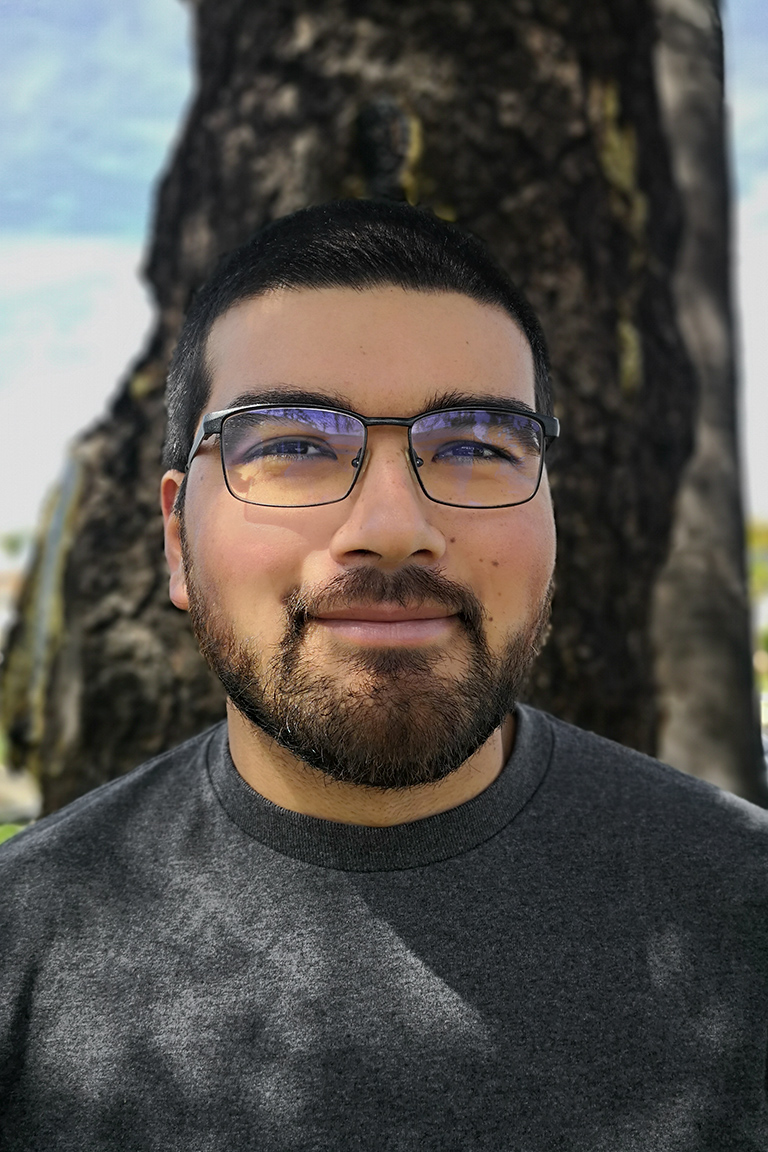
Earth Science major Michael Franco placed first in the “Physical and Mathematical Sciences II” category for his research “Distribution of Bristlecone Pines in Future Climate Change Scenario.” His faculty mentor is Assistant Professor of Earth Sciences Parveen Chhetri.
Bristlecone Pines come in three species and are the oldest living trees on the planet. They are found in high-altitude groves in several western states where the climate is dry and windy with freezing winter temperatures, and minimal competition from other plants. The Great Basin Bristlecone Pine (Pinus Longaeva) is the oldest living single tree at an age of over 5,000 years old.
Franco used treeline modeling for his research to show that climate change will force Bristlecone Pines to retreat to higher elevations, much like they did when the climate warmed at the end of the last ice age.
“If the climate warms enough, the trees may be outcompeted at lower elevations by other tree species advancing up the mountainside,” says Franco, who will graduate this spring with his bachelor’s degree. “The worry here is that suitable habitat may one day be above the mountain peaks. Bristlecones, in a scenario of warming climate, will chase their suitable growth zone, and that inevitably means that their range will contract.”
2021 Student Research Conference Awardees
Oral Presentations
Behavioral and Social Sciences I
First Place: “The Lived Experiences of Minority Mothers in the Neonatal Intensive Care Unit and the Role of Occupational Therapy.” Researchers: Colleen Vuong, Naomi Nelson, Shayna Quach, and Brandon Thomas. Faculty Mentor: Sheryl Ryan
Second Place: “The Nearly Impossible Conquest of the Guatemalan Lowlands: The Advantages of the Indigenous Maya in Central Petén.” Researcher, Cesar Ovando. Faculty Mentor: Kenneth Seligson
Behavioral and Social Sciences II
First Place: “The occupational aftermath of sexual assault survivors.” Researchers: Juliet O’Brien, Rachel Reyes, and Lauren Weaver. Faculty Mentor: Sheryl Ryan
Second Place: “The impact of stroke on transportation use in the greater Los Angeles area.” Researchers: Melanie Ramirez, Mary Grace Perez, Justin Navarro, and Bernice Verzosa. Faculty Mentor: Sheryl Ryan.
Behavioral and Social Sciences III
First Place: “Socio-Cultural Factors, Health Status Indicators and Health Beliefs That Predict Diabetes Risk Among Latinx College Students.” Researchers: Taylor Duffy, Daniel Correa, Denise Aguiluz, and Isabel Munoz. Faculty Mentors: Silvia Santos and Maria Hurtado-Ortiz.
Second Place: “Dating and Sexuality Experiences Among Transition-Age Individuals with Autism Spectrum Disorder: A Narrative Study.” Researchers: Vanessa Flores, Jennifer Dee, and Michelle Franco. Faculty Mentor: Sheryl Ryan.
Biological and Agricultural Sciences
First Place: “Delimiting Species in the Australian Lizard, Ctenotus.” Researcher: Liz Solis. Faculty Mentor: Sonal Singhal.
Business, Economics, and Public Administration
First Place: “Effects of Law and Public Policy on the Supply of Women’s Healthcare Providers in California. Researcher: Lauren Hull. Faculty Mentor: Fynnwin Prager.
Second Place: “Abolitionist Reform to Reimagine Policing: Defund the LAPD and Reinvest in Black Communities.” Researchers: Cat Munsen, NaKayla Williams, and Sarah Franks. Faculty Mentor: Fynnwin Prager.
Creative Arts and Design
First Place: “Art and Environmental Sustainability in High Fashion.” Researcher: Khasnaa Juma. Faculty Mentor: Devon Tsuno.
Education
First Place: “Child Language Development: Influence of Multilanguage Exposure and Socioeconomic Status.” Researcher: Icela Pantoja-Zamudio. Faculty Mentor: Megumi Kuwabara.
Engineering and Computer Science
First Place: “Virtual Network Function Load Balancing in Cloud Data Centers Using Machine Learning.” Researchers: Phillip Aguilera and Christopher Gonzalez. Faculty Mentor: Bin Tang.
Second Place: “Transcript Reader (Android app).” Researchers: Deepa Malani and Dhanaraj Rana. Faculty Mentor: Bhrigu Celly.
Health, Nutrition, and Clinical Sciences
First Place: “Does the Use of Oral Glucose Lower Neonatal ICU Admissions or Lengths of Stay in Asymptomatic Neonates at Risk for Transient Hypoglycemia?” Researcher: Sylvia Pabon Andraca. Faculty Mentor: Teri Ares.
Second Place: “Clinical Laboratory: Lessons Learned From COVID-19.” Researcher: Kamila Trzanek. Faculty Mentor: Payman Nasr.
Humanities and Letters I
(2 first Place awards)
First Place: “Immigration, Reproductive Rights, and Mexican (American) Women.” Researcher: Jasmine Abang. Faculty Mentor: Doris Namala.
First Place: “The Flâneuse and Phantasmagoria in the Cosmopolis.” Researcher: Jackson Martinez. Faculty Mentor: Andrew Kalaidjian.
Humanities and Letters II
First Place: “’Please Don’t Kill Me’: Confronting Racist Violence in Contemporary Young Adult Literature.” Researcher: Matthew Hernandez. Faculty Mentor: Helen Oesterheld
Second Place: “Padre, Perdóname!”: Machismo, Excommunication, and Safe Spaces in Empanada and Butterfly Boy.” Researcher: Joseline Gonzalez. Faculty Mentor: Roderick Hernandez.
Physical and Mathematical Sciences I
First Place: “Improving Undergraduate Chemistry Education Analyzing Biochemical Redox Analytes Using a Student-Built Potentiostat.” Researchers: Omar Santizo, Claire Ladan, and Justin Hathaway. Faculty Mentor: Barbara Belmont.
Physical and Mathematical Sciences II
First Place: “Distribution of Bristlecone Pines in Future Climate Change Scenario.” Researcher: Michael Franco. Faculty Mentor: Parveen Chhetri.
Second Place: “Tree-Ring Climate Response of Jeffrey Pine in the Cascade Creek Watershed, Northern California.” Researchers: Michelle Mohr, David Saldana, Gabriel Angulo, and Raju Bista. Faculty Mentor: Parveen Chhetri.
Poster Presentations
Behavioral and Social Sciences
First Place: “Using Google Earth for archaeological research: a virtual survey of the Inca road network between Machu Picchu and Choquequirao.” Researcher: Efrain Arroyo. Faculty Mentor: Jerry Moore.
Second Place: “Honoring the Dead and Defining Territory.” Researcher: Elizabeth Mallonee. Faculty Mentor: Jerry Moore.
Biological and Health Sciences
First Place: “Identification of Marine Sponge Natural Products that Inhibit the Type III Inhibition System in Pathogenic Bacteria.” Researcher: Lari Smith. Faculty Mentor: Erin McCauley.
Second Place: “Increased Angiogenesis and Embryotic Stem Cell signatures contribute to delayed growth of MDA-MB-468 Xenografts.” Researcher: Jose Garfias. Faculty Mentor: Shehla Pervin.
Business, Education, and Humanities
First Place: “Understanding Butch Lesbian Culture: Are Butches A Dying Breed?” Researcher: Ev Campos Martinez. Faculty Mentor: Jennifer Brandt.
Physical and Mathematical Sciences
First Place: “Hexavalent Chromium Emissions and Sensitive Receptors in Los Angeles County.” Researcher: German Bravo-Villasenor. Faculty Mentor: Parveen Chhetri.
Second Place: “Discrete Approval Voting Models.” Researcher: Valeria Arredondo. Faculty Mentor: Carolyn Yarnal.

